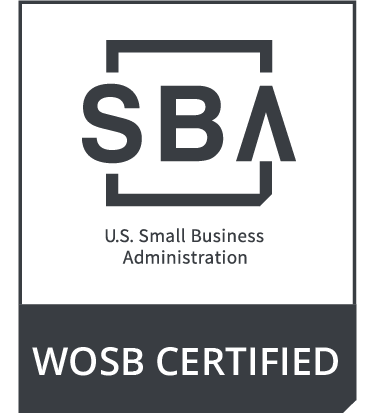Marketing Leadership During Changing Times
People have more marketing options than ever before. As a result, organizations must decide whether to develop an in-house team, outsource their marketing to an outside agency, mix these two options or develop an entirely new process.
Whether it’s emerging from a global pandemic, the rise of remote work or changing economic conditions, there’s also much more pressure on those in leadership from a marketing perspective and beyond. At Avocet, we wanted to better understand what these decision-makers think about marketing at their organizations, including:
- If they believe their organization gets it “right”
- How their organization gets marketing work done
- Their marketing goals
- How valuable they think it is to differentiate themselves from competitors
After conducting a research study with 200 individuals in leadership positions across 30 types of industries (85 percent of which are marketing leads for their organization), we discovered three distinct types of business marketers with differing perspectives and approaches to marketing.
Different Types of Marketers, Different Beliefs
After conducting the research, three distinct types of marketers emerged. Think about which one sounds like your ideas and beliefs about your organization’s marketing efforts.
#1: Accomplished Marketers
Representing 28 percent of respondents, Accomplished Marketers trust their organization’s marketing efforts and think they’re more sophisticated than other groups. They approach marketing methodically by establishing their marketing goals first, planning activities around those goals, and then tracking the impact they have. And they rely on in-house expertise to make it all happen.
They’re confident because they believe their organization gets a lot right beyond goal setting and achievement. They are very much aware of their competition and excel at differentiating themselves among that competitive set.
When it comes to their organization’s marketing approach, they say their greatest assets are innovation and creative thinking because they think outside the box. Compared to other business marketers, they believe their organization is doing what it needs to do to be effective, and they’re less likely to say they need to up their marketing efforts.
#2: Anxious Strugglers
Representing the largest segment of our study (40 percent), Anxious Strugglers don’t feel stable with their organization’s marketing efforts and as a result, lack confidence in regard to industry challenges. Unlike Accomplished Marketers, they think externally when it comes to marketing. They worry about shifting economic conditions, finding customers and buyer behavior.
Anxious Strugglers say their organization keeps doing the same marketing activities it’s always done and is reluctant to pursue different marketing activities to succeed.
They feel like their organization falls short when it comes to marketing and that their strategy, innovative thinking, and ability to get outside perspectives could be better. Adding to the challenge is their perceived talent shortage and ability to find qualified marketing employees.
#3: Strategy Believers
Strategy Believers make up 31 percent of respondents and prioritize research-based marketing strategies. They believe effective marketing starts with a top-notch marketing strategy, which must be in place before developing content or creative. The fact that they prioritize their strategy sets their organization apart from competitors. They also leverage their strategy by incorporating it into their brand identity.
These respondents are true believers in multi-channel marketing strategies and say marketing multiple types of content on multiple platforms is more effective than other marketing strategies.
Compared to the other respondent groups, Strategy Believers are more likely to be over the age of 30 and have a core marketing position within their organization.
Finding Common Ground and Attitudinal Differences
Out of the 200 professionals we studied, we found different types of marketers across all age groups, organization levels and organization roles. Furthermore, both groups did not statistically differ between organization revenue, marketing budget, or customer types (B2B and B2C). However, there were a few interesting takeaways within Accomplished Marketer respondents. They’re more likely to give their organization high ratings for:
- Prospect management
- Understanding prospect needs
- Reaching and engaging prospects
- Converting prospects to customers
- Retaining prospects
They are also two times more likely than other segments to say their organization is excellent or very good at marketing strategy and execution.
Looking Within and Paving a Path Forward
Ask yourself: Which one of these business marketer segments do you relate to the most? How effective is your organization’s marketing approach? Do you feel confident in your organization’s ability to succeed in marketing? Here are five questions to ask yourself when deciding which group you fall into:
- How confident are you in your organization’s marketing efforts?
- How much do you worry about external forces, such as changing economic conditions?
- How much do you prioritize a marketing strategy?
- How does your organization differentiate itself among competitors?
- Do you have someone on your team who you’d consider a marketing expert?
If you identify as an Accomplished Marketer, good for you! Your organization is doing well, and you’re confident that you’re creating a stable and effective marketing approach that’s agile enough to withstand external forces.
However, if there’s one thing you can count on in marketing, it’s constantly evolving. Curiosity drives the need for new things and expertise drives innovation. An outside perspective can be a real gift to Accomplished Marketers if you are constantly marketing the same products to the same audiences. When you get too close to your own work, it’s all too easy to not think outside the box. Outside perspectives can lead to better perceptions about the needs and wants of your audience and can create a strong internal team.
If you’re identifying with Strategy Believers, you’re still on the right track. But this group often falls into the trap of paralysis by analysis. We see all too often that too much data can stop people in their tracks because they lose sight of their brand’s authenticity and lack the emotional messaging that’s needed to connect with an audience.
Over 71 percent of marketers that manage company revenue streams struggle on some level. Isolating those individual areas of concern and backfilling them with outsourced and in-house marketing experts will begin to impact OKRs and KPIs that can positively impact the bottom line.
Many of our respondents fell into the Anxious Strugglers category, and if this is you, you’re not alone! With so much change in the marketplace regarding staffing and its effects on bandwidth, remote working, KPI targets, new technology and technology regulations, it is important to recognize that simply doing what you’ve always done and thinking it will work in this new environment is not the answer. Because many of us are so preoccupied with getting the work done, it’s easy to forget about strategy.
The good news is that you can grow your marketing confidence and strategy in order to succeed. It’s vitally important to change the internal dynamics surrounding the need for a strategy-first mindset. To be successful, start by reverse engineering your approach and defining the needed strategy. Don’t forget to identify any gaps in audience segmentation and be sure to think about your competitors before you determine if you’re going to challenge someone or something. Being aligned at all levels within your broader marketing team is also crucial.
If you’re looking to improve your organization’s marketing approach, become more confident in your efforts, and stand out from others in their industry, stay tuned for our next post where we’ll shed more light on the path forward.
To learn more about each segments’ behaviors and the opportunities they present, check out our entire executive summary and webinar. And to further ignite your own marketing strategy, check out our podcast.















